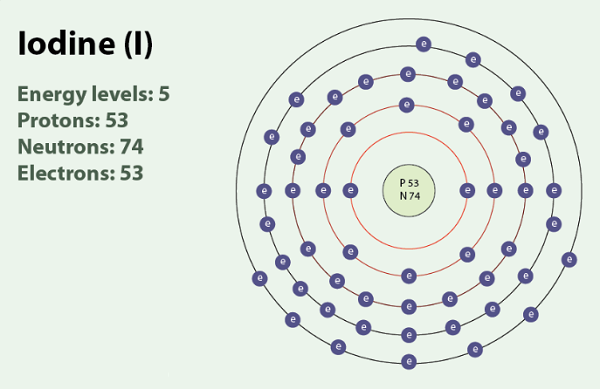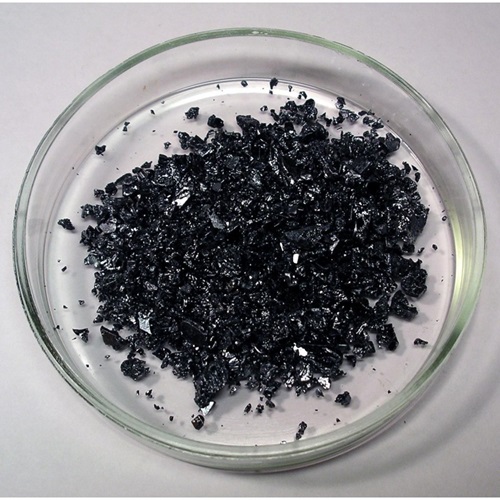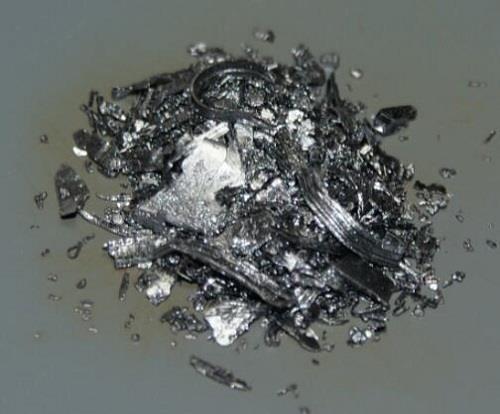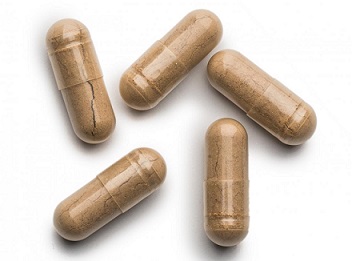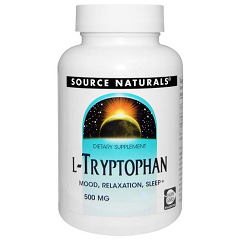Pharmacological action of Iodine
Iodine is a chemical element with the symbol I and atomic number 53. The heaviest of the stable halogens, it exists as a lustrous, purple-black non-metallic solid at standard conditions that melts to form a deep violet liquid at 114 degrees Celsius, and boils to a violet gas at 184 degrees Celsius. The element was discovered by the French chemist Bernard Courtois in 1811. It was named two years later by Joseph Louis Gay-Lussac from this property, after the Greek ἰώδης "violet-coloured".
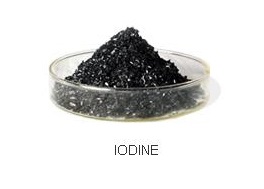
Properties
Iodine is a chemical element. The body needs iodine but cannot make it. The iodine needed by the body must come from the diet. As a rule, there is very little iodine in food, unless it has been added during processing. Processed food typically contains more iodine due to the addition of iodized salt. Most of the world's iodine is found in the ocean, where it is concentrated by sea life, especially seaweed.
Iodine deficiency
The thyroid gland needs iodine to make hormones. If the thyroid doesn't have enough iodine to do its job, systems in the body cause the thyroid to work harder. This can cause an enlarged thyroid gland (goiter), which causes a swollen neck.
Other consequences of not having enough iodine (iodine deficiency) are also serious. Iodine deficiency and the resulting low levels of thyroid hormone can cause women to stop ovulating, leading to infertility. Iodine deficiency can also lead to an autoimmune disease of the thyroid and may increase the risk of getting thyroid cancer.
Iodine deficiency during pregnancy is serious for both the mother and the baby. It can lead to high blood pressure during pregnancy for the mother and mental retardation for the baby. Iodine plays an important role in development of the central nervous system. In extreme cases, iodine deficiency can lead to cretinism, a disorder that involves severely stunted physical and mental growth.
Pharmacological action
Iodine is taken by mouth to prevent and treat iodine deficiency and its consequences, including goiter and some thyroid disorders. It is also used for treating lumpy breasts (fibrocystic breast disease) and breast pain (mastalgia).
Iodine reduces thyroid hormone and can kill fungus, bacteria, and other microorganisms such as amoebas. A specific kind of iodine called potassium iodide is also used to prevent thyroid damage after a radioactive accident.
Iodine is also used for radiation emergencies, to protect the thyroid gland against radioactive iodides. Potassium iodide tablets for use in a radiation emergency are available as FDA-approved products (ThyroShield, Iosat) and on the Internet as food supplements. Potassium iodide should only be used in a radiation emergency, not in advance of an emergency to prevent sickness.
Iodine is sometimes applied to the skin for skin inflammation and to kill germs and heal wounds, to prevent soreness inside the mouth or along the digestive tract (mucositis), and to treat diabetic and other external ulcers. Iodine is also applied inside the mouth to treat gum disease and reduce bleeding after the removal of a tooth.
Iodine is used in the eyes to reduce swelling in infants and to prevent vision loss in patients with ulcers of the cornea.
Iodine is used in the vagina to prevent post-Cesarean swelling of the lining of the uterus.
Iodine is also used for water purification.
Side effects
Iodine can cause side effects in some people. Common side effects include nausea and stomach pain, runny nose, headache, metallic taste, and diarrhea.
In sensitive people, iodine can cause side effects including swelling of the lips and face (angioedema), severe bleeding and bruising, fever, joint pain, lymph node enlargement, hives, and death. However, such sensitivity is very rare.
Related articles And Qustion
See also
Lastest Price from iodine manufacturers

US $360.00-99.00/kg2025-04-21
- CAS:
- 12190-71-5
- Min. Order:
- 1kg
- Purity:
- 99% purity,WhatsApp+86 18102676775
- Supply Ability:
- 20 tons
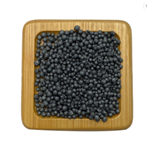
US $23.00-1.00/kg2025-03-07
- CAS:
- 12190-71-5
- Min. Order:
- 1kg
- Purity:
- 99%
- Supply Ability:
- 300tons

